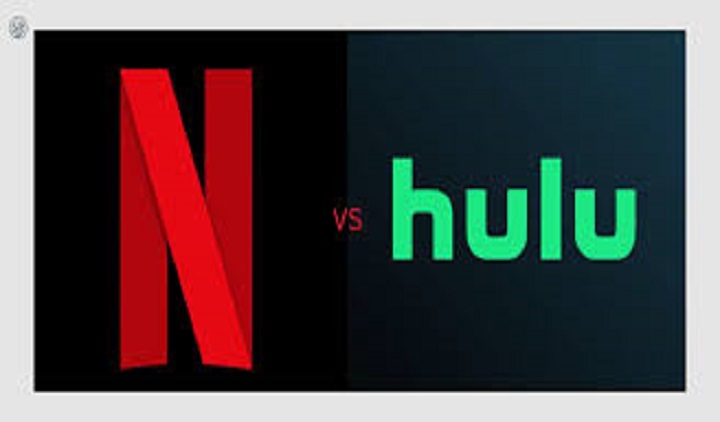Introduction: Hulu or Netflix — Which Streaming Giant Wins?
When it comes to streaming entertainment, Hulu and Netflix are two of the biggest names competing for viewers’ attention. Each service offers unique strengths tailored to different audience preferences. For entrepreneurs, marketers, and business owners, understanding the nuances between these platforms can help tailor content strategies and advertising efforts.
This article breaks down the pros and cons of Hulu and Netflix, helping you decide which service is the better choice for your streaming preferences in 2025.
Overview: Hulu vs. Netflix
| Feature | Hulu | Netflix |
| Monthly Price | Starts at $7.99 (ad-supported) | Starts at $9.99 (basic plan) |
| Content Library | 50,000+ TV episodes and movies | 6,500+ movies and shows worldwide |
| Originals | Popular originals like The Handmaid’s Tale | Hit original series like Stranger Things and The Crown have become cultural phenomena. |
| Ads | Ads on most plans, ad-free option available | No ads on any paid plan |
| Simultaneous Streams | 2 (up to 4 with higher plans) | 1–4 streams depending on plan |
| Offline Downloads | Available on ad-free plans | Available on all paid plans |
| Device Compatibility | Wide (smart TVs, smartphones, consoles) | Wide (smart TVs, smartphones, consoles) |
Content Variety: Who Has the Better Library?
- Hulu: Known for its extensive TV show library, especially current episodes from major networks like ABC, NBC, and Fox. If you love watching the latest TV episodes shortly after they air, Hulu is a top pick. It boasts a robust lineup of original series alongside a solid selection of movies.
- Netflix: Famous for its vast movie catalog and exclusive originals. Netflix invests heavily in creating award-winning content, from blockbuster films to critically acclaimed series. If you enjoy binge-watching entire seasons or discovering new movies, Netflix offers more depth in this area.
For Entrepreneurs & Marketers: Netflix’s originals often generate significant social media buzz and can be ideal for content partnerships. Hulu’s timely TV content appeals to viewers wanting current shows, offering unique advertising opportunities.
Pricing and Plans: What Will It Cost You?
- Hulu offers budget-friendly plans beginning at $7.99 per month with ads, and $14.99 per month for an ad-free experience. There are also live TV options at higher prices for cord-cutters.
- Netflix starts at $9.99/month for its basic plan (with one stream and SD quality), $15.49/month for the standard HD plan, and $19.99/month for the premium 4K plan with four streams.
Summary: Hulu is generally cheaper if you don’t mind ads, making it attractive for budget-conscious users. Netflix provides ad-free viewing across all plans but at a higher price point.
User Experience: Interface and Features
- Hulu: Interface is clean and user-friendly, especially on mobile and smart TVs. The service offers personalized recommendations and easy access to current TV episodes. However, ads can disrupt the experience unless you pay for ad-free.
- Netflix: Known for its sophisticated recommendation algorithm that suggests content based on your viewing habits. The user interface is smooth, intuitive, and consistent across devices, offering seamless playback and multiple profiles.
Originals and Exclusives: What’s Unique?
- Hulu: Notable originals include The Handmaid’s Tale, Only Murders in the Building, and Castle Rock. Hulu focuses on compelling TV dramas and comedies.
- Netflix: Has produced globally popular originals like Stranger Things, The Witcher, Squid Game, and Bridgeton. Netflix’s commitment to producing original movies and documentaries remains unparalleled.
Ads: How Much Will You Watch?
- Hulu: Ads are present in the base plan, roughly every 8-10 minutes, similar to traditional TV. The ad-free option removes commercials but costs almost double the base plan.
- Netflix: Completely ad-free on all plans, ensuring uninterrupted viewing.
Device Compatibility and Streaming Quality
Both platforms support most devices including smart TVs, smartphones, tablets, streaming sticks, and gaming consoles. Netflix’s premium plan offers 4K UHD, while Hulu’s top-tier plans do not yet consistently support 4K streaming.
Actionable Insights: Which Service Should You Choose?
- Choose Hulu if:
- You watch a lot of network TV shows and want current episodes quickly.
- You want an affordable streaming option and don’t mind ads.
- You are interested in live TV streaming alongside on-demand content.
- You watch a lot of network TV shows and want current episodes quickly.
- Choose Netflix if:
- You prefer a vast movie library and original series.
- You want ad-free streaming with multiple profiles.
- You enjoy binge-watching and high-quality 4K content.
- You prefer a vast movie library and original series.
Conclusion: Hulu or Netflix — Which Is Better?
Hulu and Netflix both offer strong streaming services, each tailored to different viewer preferences. Hulu distinguishes itself with a broad selection of TV content and affordable pricing, while Netflix leads with an expansive movie library and a focus on original programming.
For entrepreneurs and marketers, knowing your audience’s streaming preferences can guide advertising and content partnerships effectively.
Ultimately, the better service depends on your content preferences, budget, and desired viewing experience.
Also Read: Viral Celebrity TikTok Moments That Took the Internet by Storm in 2025
Also Read: Top YouTubers to Follow in 2025: Creators Redefining Influence & Engagement
FAQ: Hulu vs. Netflix
- Which service has more original content?
Netflix has a larger and more diverse collection of original movies and series. - Can I watch live TV on Netflix or Hulu?
Hulu offers live TV as an add-on, while Netflix does not provide live streaming. - Is Hulu cheaper than Netflix?
Yes, Hulu’s base plan is generally cheaper but includes ads. - Do both services allow offline downloads?
Netflix permits downloads on all paid plans, while Hulu restricts downloads to its ad-free subscription tier.
5. Which platform supports 4K streaming?
Netflix supports 4K UHD on premium plans; Hulu’s 4K content availability is limited.
















